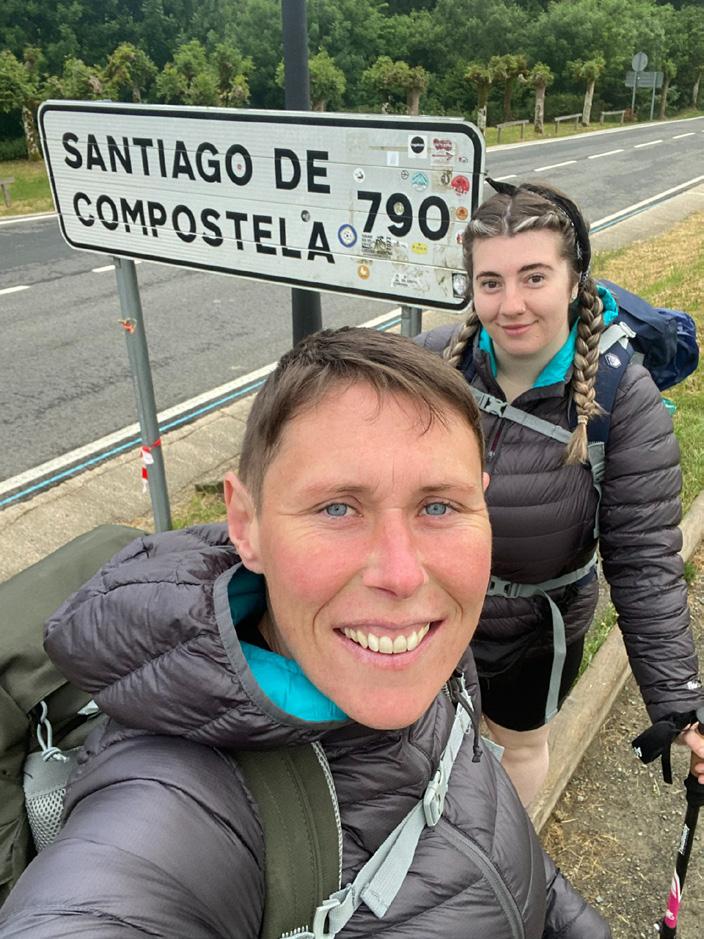
10 minute read
OUR PILGRIMS’ PROGRESS
In late May of last year, two of our staff members headed off to the South of France to begin a massive 500-mile walking challenge through the Pyrenees mountains, raising money for Autism Together and a greater awareness of autism along the way.
Claire Quinlan, an Activity Leader at Raby Gardens, and Hannah Fulton, a former Senior Support Worker at Raby Hall, were inspired by a movie called ‘The Way’, starring Martin Sheen, to complete a popular pilgrimage route: El Camino De Santiago.
Advertisement
This gruelling trek took them through the Pyrenees range, through tough terrain and changeable weather, into northern Spain, before heading out onto the flat Meseta in scorching heat until finally reaching their destination in Santiago.
Hannah has since moved jobs, but Claire remains a popular and familiar face to everyone who visits Raby Gardens where she has a close affinity with all our farm animals, especially the alpacas. Indeed, her adventurous spirit and love of the outdoors has led to her being nicknamed ‘Claire Grylls’ by her co-workers.
There are quite a number of routes open to pilgrims along ‘The Way’ and Claire and Hannah chose Route Napoleón which first heads into the Pyrenees mountains, a more strenuous route but with rewarding mountain views.
33-days and over 500-miles later, the girls had completed their Camino and were awarded their medals and certificates, or ‘Compostelas’, written in Latin and proving they had completed this epic journey.
Back in Raby Gardens we took some time to chat with them about their month-long journey along this historic trail.
Why did you decide to walk the Camino?
Claire: I think for us it was a massive challenge for our fitness and also tied in with the fact we could fundraise for Autism Together and make people more aware of autism. We got a shock, I think, from all the different countries and the people we spoke to, how little people know of autism. you have to get used to?
Hannah: As soon as we finished watching it [the movie ‘The Way’] we just knew that we wanted to do it.
C: It’s just such a special experience –spiritual, emotional, physical. Just from watching it we said, let’s book it for next year.
Did you feel nervous in advance, how much research did you do?
C: I wouldn’t say it was nerves, I was more excited.
H: I was excited but I felt like we didn’t really know what we were getting ourselves into.
C: I did all the research, so of a night I planned the route and how many miles per day, and wrote it all down. I’m more the organiser.
H: You booked all the places we were going to stay.
C: Yeah, it took us a bit of time to get used to. When we got into the swing of it the communal dinners, that was really something we looked forward to, sharing everyone’s experiences and talking to people from all around the world.
H: The only thing was the dinners were between 7 and 8 o’clock, so we’d have to stay awake, but we’d be so tired.
C: We booked our first 10 nights, because it was so busy the first few stages, so we always booked ahead, some nights we were literally booking on the day, but it was hostels. Our first night in Saint-Jean it was just a woman’s house and we rented a room. And when we walked over the Pyrenees into Roncesvalles we were in a dormitory with about 150 people, which was an experience!
We were in bunk beds and [next to us] we had two French fellas in their 60s, and that was quite an experience being so close to someone, and they were just getting their clothes off and getting changed!
H: They gave us French sweets though, it was a friendly atmosphere. We weren’t expecting to be that close to someone else.
It’s a communal experience, walking the Camino, I guess that’s something
C: And it would be like a set menu, so if you didn’t like it, that was it! So, one night we were in a little town and Hannah’s main was cow’s tongue and chips - and it literally came out like a tongue on a plate!
H: It was soft. I thought it was a horrible texture.
C: It was very tender, I enjoyed it. I liked it, but we were that hungry, we just had to eat it.
H: If you didn’t eat it, they got quite offended, you know? I felt so awkward. I was like, oh God, I don’t want to say.
C: But it’s the communal way and you pay €10 for a three-course meal with a bottle of wine and a bottle of water. So, you’re thankful for what you get because you’re that hungry, and in Spain on a Sunday it’s hard to find somewhere to eat because everything shuts down. So some days we were really hungry just looking for food.
H: We’d have all our stuff in our bag and then we’d have to go shopping, you know, the day before and then fill it up with food.
What sort of training did you do to get prepared or did you feel like you were pretty much ready for it?
C: We’ve got our walking group, the Raby Ramblers, so we do a walk every month with them and then we were just doing Snowdonia all the time, Moel Famau. Anything really – long walks, short walks, running. But then some people go and they don’t do anything.
I think we were really prepared for the fitness and we did well, especially on that first bit. Over the Pyrenees it was 12 miles, constant uphill. Yeah we did well, in a good time on that as well.
They’ve got two different [main] routes… the Napoleón route, the one that we took, that’s the more challenging route. And they’ve got a low-lying route.
Yeah, there’s like 20 different ways you can do the Camino now. We did the original, the 500-mile tough one. A lot of people start from different areas, so you’ve got your Portugal Camino, you’ve got your Bilbao, your Finistere, the Northern way.
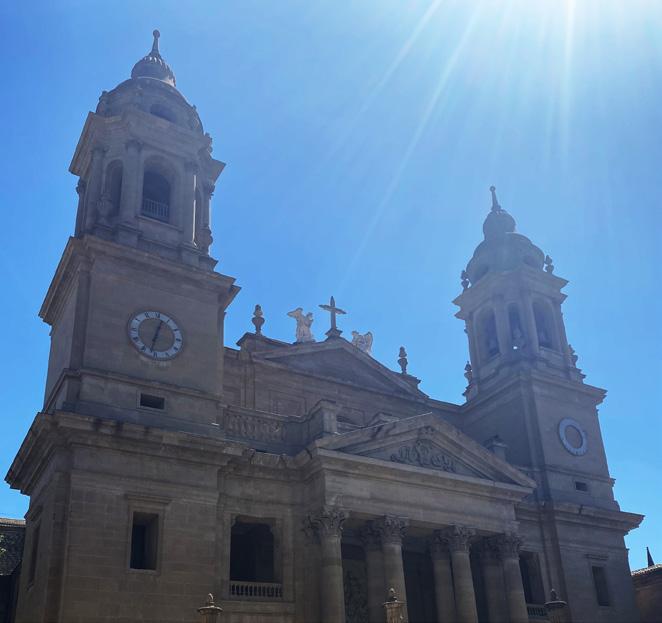
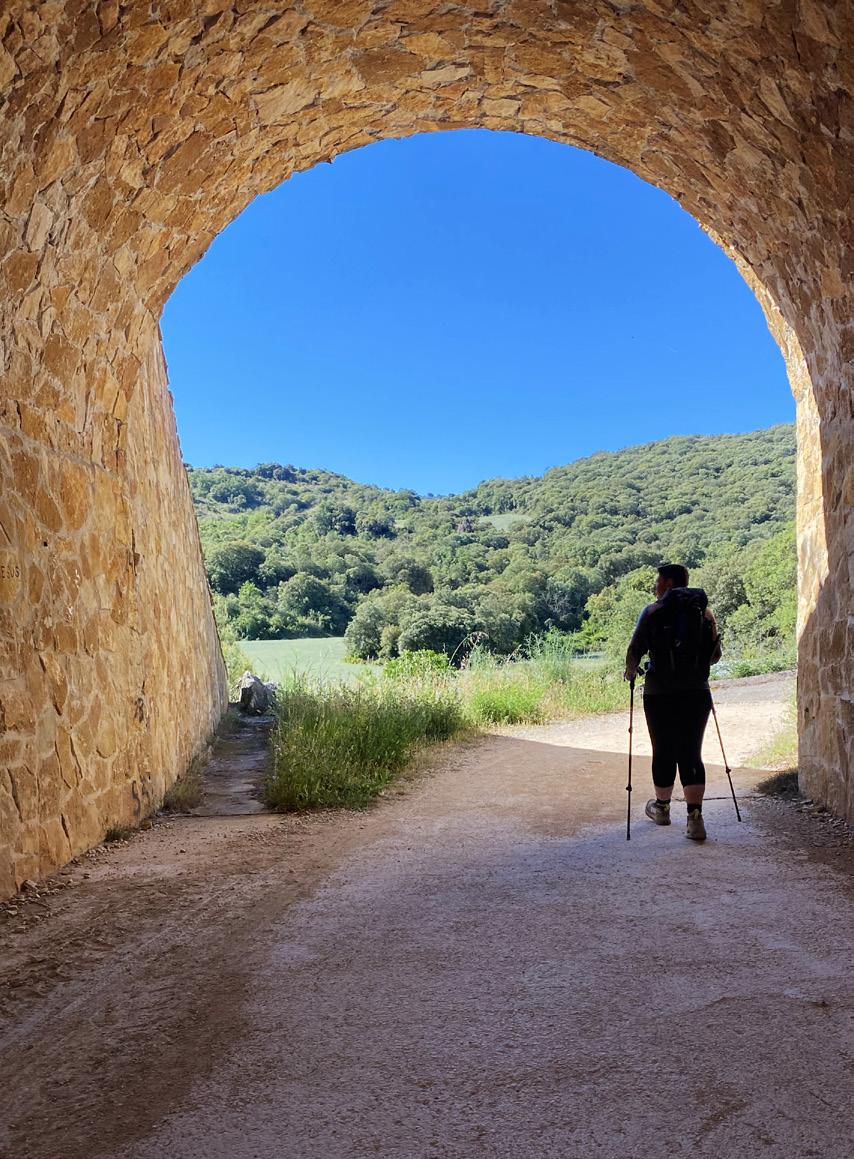
H: Some people that went the way that we did, skipped the Pyrenees and just started straight from the next town, Roncesvalle, I think because the Pyrenees is so challenging.
So as long as you walk the last bit, you get your certificate?
C: 100 kilometres, from Sarria, yeah. We found when we hit Sarria, the atmosphere changed, for us.
You didn’t enjoy it as much that way?
C: The spirit of the community for me went, I think it was more of a touristy thing then, where before we had our little group didn’t we, that we saw along the way.
H: We’d see them every two or three days.
C: Yeah, we’d always stop and chat and stuff, and when you see people: “Buencamino!”, but after Sarria that just stopped.
So, what was the weather like?
H: The first two weeks was really nice, wasn’t it? Dead hot, but bearable. Once we got past O Cebreiro it changed and it was just raining.
C: When we started in France it was raining, going over the Pyrenees, it was cold. We had gloves on and everything, all our winter stuff. And then when we came down into Spain it would be like 45 degrees by 2 o’clock.
Did you see any interesting wildlife there?
C: There’s lots of signs saying there’s wolves and bears. We saw loads of birds of prey. We saw a deer and a deer carcass. Yeah, we were just looking and thinking it’s got to be a big predator to have dragged it down here. So, they were around there, but luckily we didn’t see anything.
H: We got to a hill and it had all barbed wire.
C: Oh yeah, bear fencing – barbed wire to keep the bears away from the sheep. It must have been about 3 metres thick of barbed wire. Obviously, we were walking on the bear side! All the sheep were safe! So, we looked around and our pace picked up a little bit, but no, we didn’t bump into any hungry bears.
In terms of practicalities, I guess you can only take a certain amount of clothing so do you have to do loads of laundry along the way?
So, we’d be getting up at 4 o’clock in the morning and starting, trying to beat the heat. We were walking in the pitch black, but we managed. But it was tough going in that heat and we were lucky really because like a day after we got to Punta Darena there was a forest fire behind us. We could smell it. So we were lucky we got through that.
Could that have been the end of your journey?
C: Yeah, they closed The Camino for safety – because it was just so barren and hot. It’s very challenging. People don’t realise how very challenging it is. Quite a few people unfortunately lost their lives while we were out there.
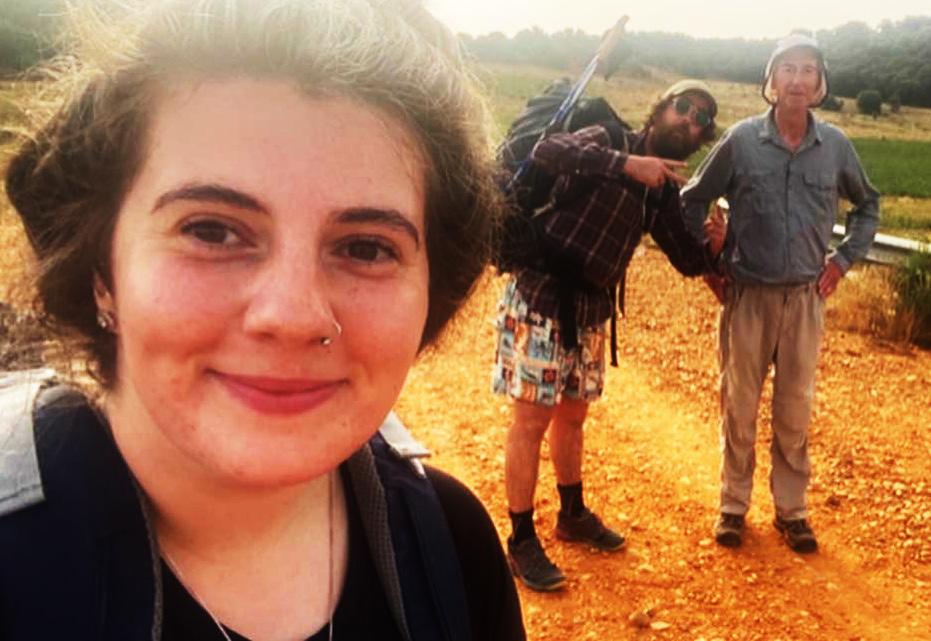
C: Yeah. We’ve literally got a couple of tops, a couple of pairs of shorts, a pair of pants, 3 pairs of socks, couple of bits of underwear.
When you get to your place in the evening you’ll handwash, or a couple of Euros to throw some in the machine. But we didn’t really struggle with anything like that.
How did you find the flatter sections of the route?
H: Really hard.
C: It was because of the straightness of it.
H: On one day, we walked for 10 miles without stopping in a straight line and it was just mentally draining. There was just nothing.
C: It wasn’t even fields, it was just barren.
H: I just wanted to sit down, but Claire was like ‘we just have to keep going ‘til we see something’. We got to a café at the end and we sat there for hours and we were like, ‘oh, we’ve still got four more miles!’
C: Yeah I’d say the most challenging bit was that. We love up and down, the forests and the mountains - absolutely beautiful. But we struggled at that bit. And the towns… you’ll be walking for miles and you can see it in the distance and it’s just not getting any closer! But it is an amazing experience. I can’t big it up enough.
How were you sharing autism awareness along the way?
C: We were telling people what we did [at Autism Together] because people were amazed that we could have the time off.
I think because a lot of the younger guys were starting further on or doing sections, because of work commitments.
So, we explained about the charity, and how we took a sabbatical and how we’re fundraising.
H: They were amazed that we’ve got a farmland where the guys can come down for the day. They said that they’d never heard of anything like that before.
C: Yeah, yeah. We were talking to one man and his dad from Tasmania – Sam and Jeff. They were just absolutely amazed. They knew about autism, we offered little tips and stuff, because their niece or nephew was autistic and he said, ‘I’ve never thought of doing that and he was just amazed’.
H: They got a bit emotional, didn’t they? When we were telling them about our jobs. He just said, ‘you’re two nice people’.
C: Yeah, he said, ‘I can’t believe there’s something like that, that these guys can go to and just live a normal life’. And we were speaking to people from Spain or Korea and it’s all institutionalised there.
The guys from Korea, they just couldn’t understand it, I don’t think they could get their heads around it, a place like Raby, because they’ve nothing like that.
So, I think we’re very lucky to have something like this, where we live, and how far we’ve come for the guys, it’s amazing.
Tell us more about the people you met along the way, like the US journalist?
C: Jane Wells, yeah, she tricked us. H: She did. She got our whole life story.
C: Yeah, we were being interviewed and we didn’t even know.
H: But someone donated on our [fundraising] page saying ‘I’ve donated because I heard your story through Jane Wells’. But Jane had introduced herself to us as Jane Waddell, different second name.
So, when she said Jane Wells we searched on Facebook and there she was. And she’s written all about us, it’s crazy, and we didn’t know –very sneaky.
C: We’d see them, wouldn’t we? Every day pretty much, walking along or at a cafe, having a coffee and stuff.
So we’d be saying hi and stuff, we just got talking about where we were from and they said they were from California, and I said, ‘oh, my uncle lives in California in Thousand Oaks’, and she was gobsmacked because she lived just around the corner from him.
So that’s how we got talking, and then one day she was just asking how did we get the time off work and that’s how it snowballed.
Then we told her all about what we’re doing and why we’re doing it and next minute all these donations started coming in from America. But yeah, she’s a lovely lady. She was very nice, but very sneaky!
So how much did you guys raise in the end?
H: I think it was just over £1,100.
C: We also had the donation of £10,000 for the tractor off a generous donor and she’s since donated another £10,000. So we’re going to get a trailer that the guys can sit in, and we can take them on trips round. Plus, the Just Giving page, so we did really well.
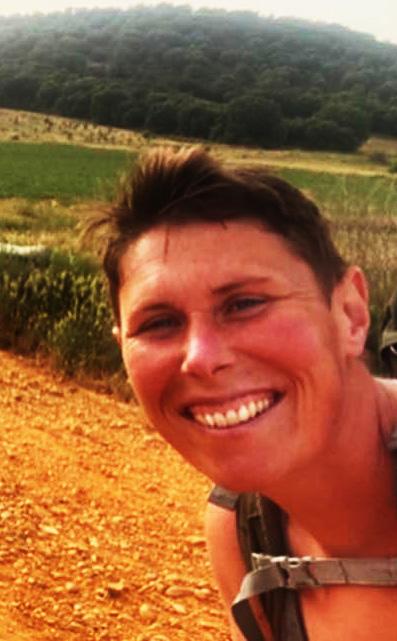
When it all started I thought we’re never going to get a tractor. I thought a couple of hundred pounds and then this lady, she was so impressed with what we do. I was gobsmacked.
So, did you feel anything spiritual on the journey, as it’s a pilgrimage?
C: Yeah, that was emotional at the end for us both. But even on the walk, every village, town, they always had a church. So, every now and again we would go in them. I’d say that I felt spiritualized and reenergised from just going in and sitting there, and having a bit of reflection.
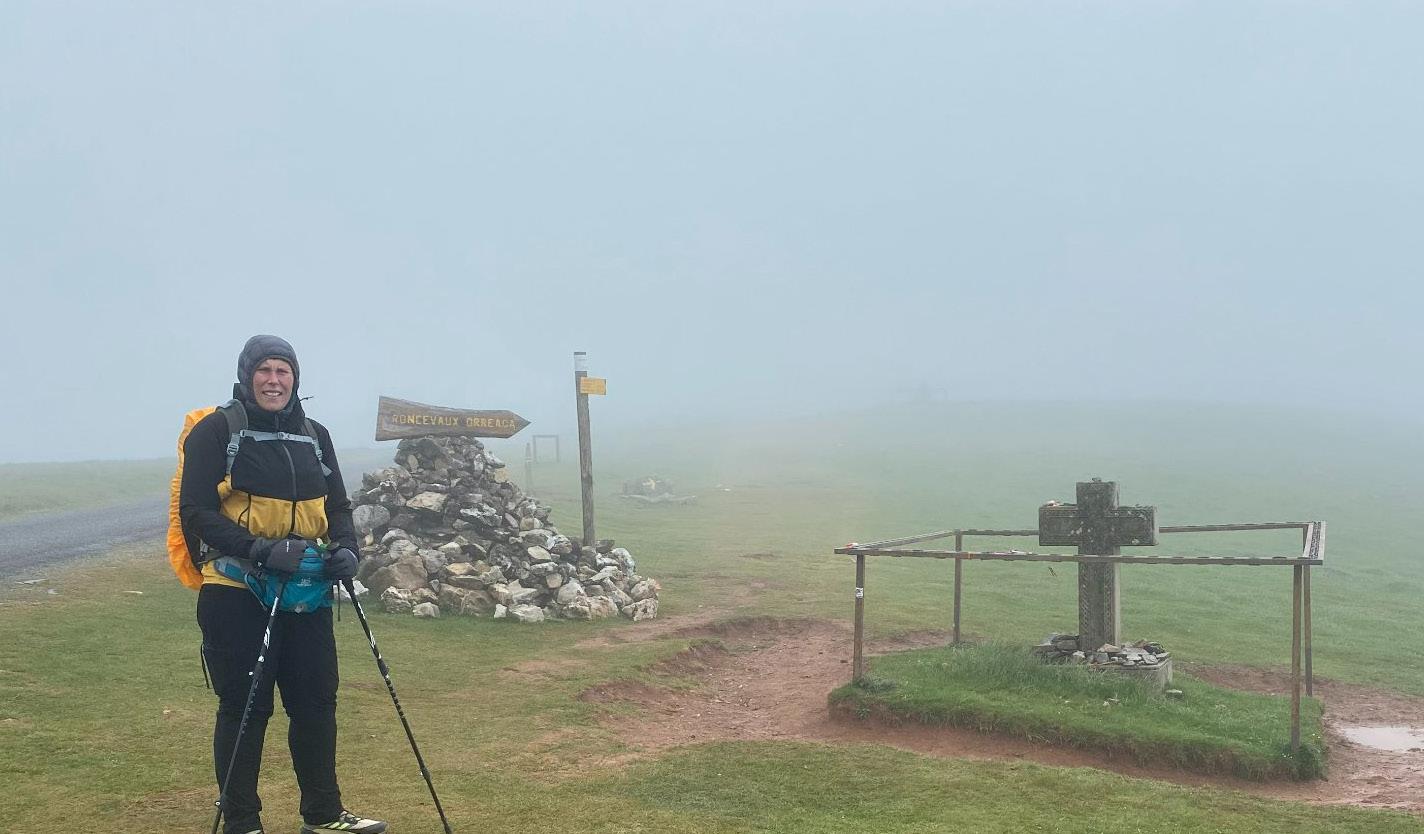
H: I think the positive attitude of everyone that we met was spiritual as well.
C: Yeah, everyone was happy. I think the spirit of the Camino definitely helped us, and the spirit of everyone else. And a few ‘spirits’ along the way!
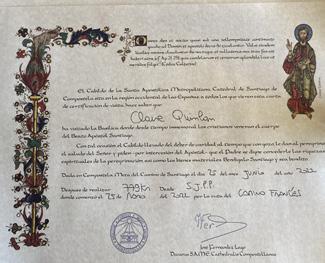
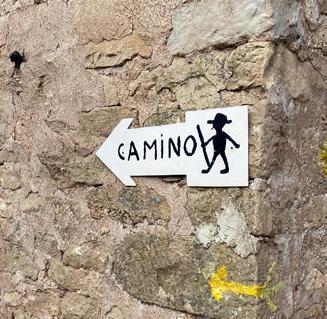
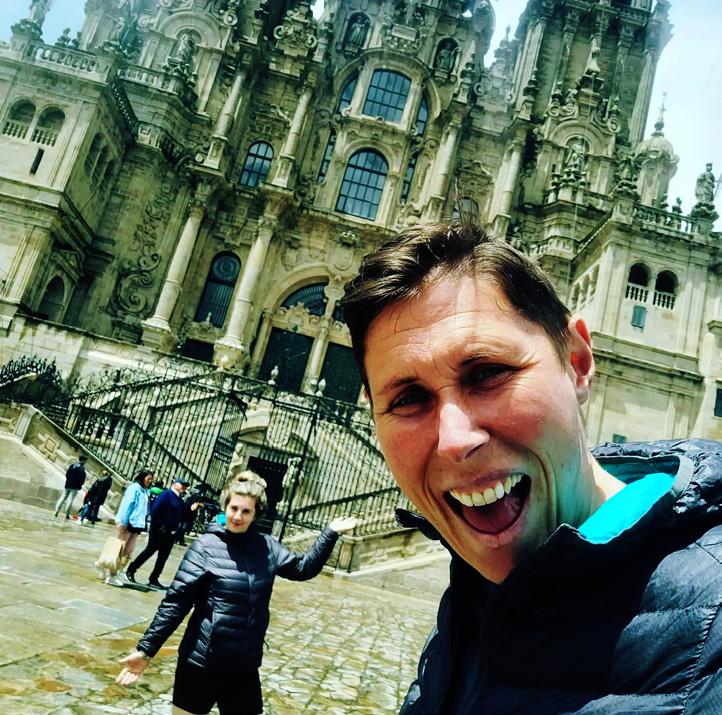
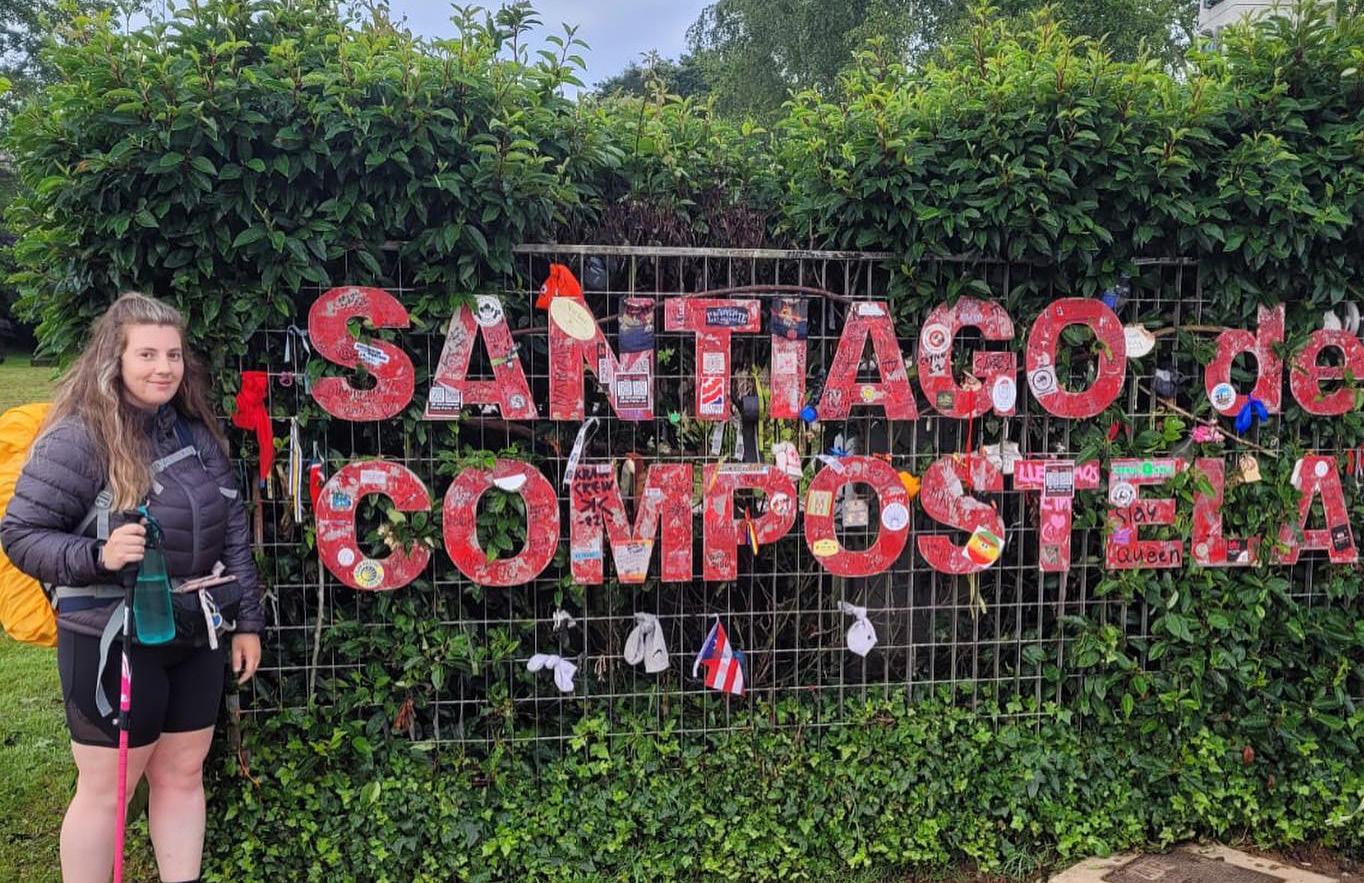
So, would you do it again or another pilgrimage?
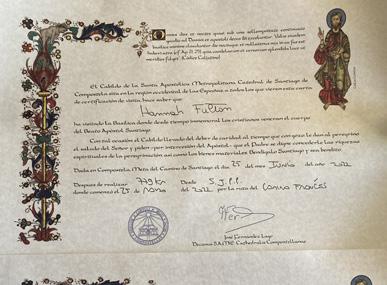
C: Definitely, 100%, yeah, I’ll do it tomorrow.
H: I’d do them all. We said in 5 or 10 years we’ll do it again!
If you’d like to donate to support the work we do at Raby Gardens, you can make a donation via our website: www. autismtogether.co.uk/donate/










